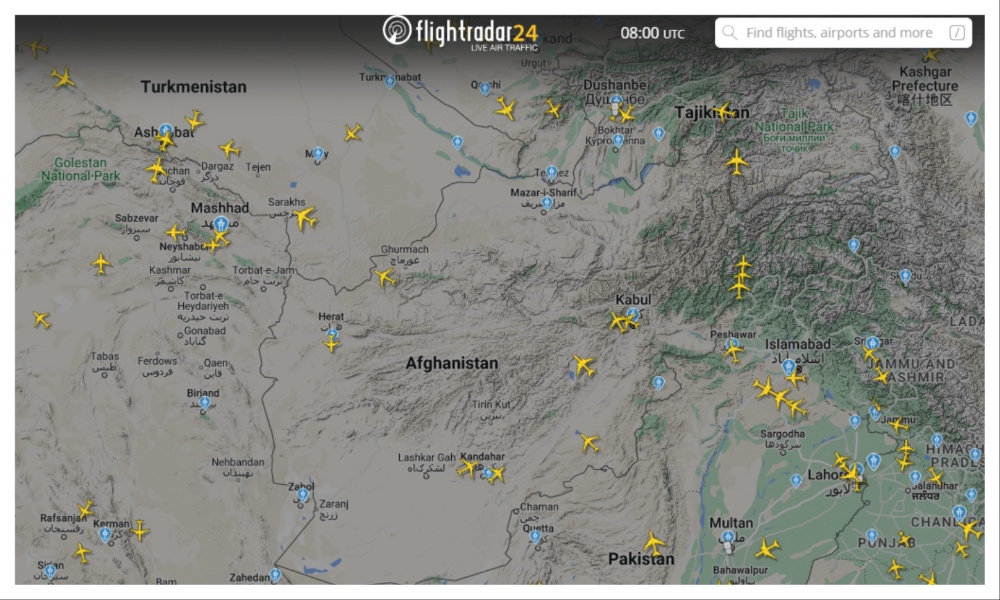Afghanistan has seen a record high number of international flights passing through its airspace in the past week, amid escalating tension in West Asia.
The spike came after Iran launched a massive missile attack on Israel last week, which led to flights diverting and flying over Afghanistan.
According to The Independent, a record 191 flights passed over Afghanistan, each one paying the Islamic Emirate $700 for the privilege.
The Independent reported that these flights included British Airways, Lufthansa, and Swiss Air planes.
FlightRadar24 recorded an average of 147 flights per day through Afghan airspace between 19 and 30 September, not including journeys that started or finished in Afghanistan itself.
The number went up to 171 on Tuesday when Iran launched 180 missiles against Israel. And on Thursday and Friday, this number went up to 191, The Independent reported.
Speaking to the publication, FlightRadar24’s spokesperson Ian Petchenik said, “We’re seeing aircraft that would normally transit through Iran make use of Afghanistan airspace now.”
“As we start to see more and more airspace restrictions (in West Asia), airlines are making a trade-off or a calculated decision on risk – is this a safe method of operation? And is it safer than the alternative that still allows us to operate these flights?” Petchenik added.
The Afghan airspace has been largely avoided by international flights since the Islamic Emirate regained power in August 2021.
But the number of flights has steadily gone up since the Israel-Hamas war began on October 7 last year and the escalating conflict in parts of Middle East and West Asia.
Speaking to Reuters, a spokesperson from FlightRadar24 said that international flights diverted “anywhere they could,” and a snapshot of traffic in the region showed flights spreading in wide arcs to the north and south, with many converging on Cairo and Istanbul.
On Tuesday, about 80 flights, operated by the likes of Emirates, British Airways, Lufthansa, and Qatar Airways and bound for major Middle East hubs such as Dubai, Doha and Abu Dhabi, were diverted to places such as Cairo and European cities, its data showed.













